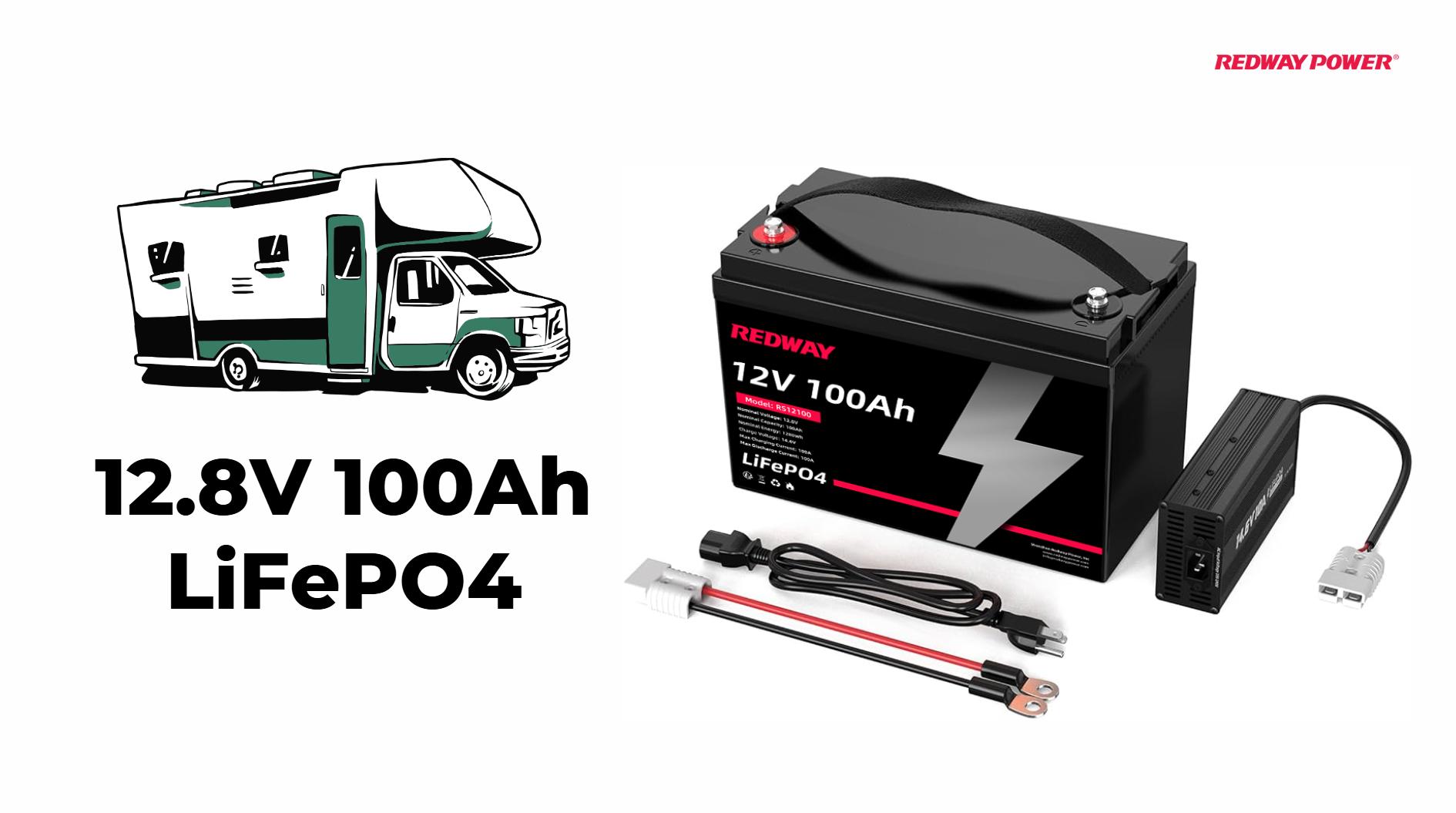A 100Ah lithium battery can last between 4-10 hours in an RV, depending on usage patterns and appliances being powered. Higher consumption devices will reduce runtime significantly.
When embarking on an RV adventure, one of the most crucial considerations is how long your 100Ah lithium battery will last. Understanding the longevity and efficiency of a 100Ah lithium battery, specifically Lithium Iron Phosphate (LiFePO4) batteries, is essential for a seamless and worry-free journey. Here, we delve into the specifics to help you maximize the potential of your RV’s power system.
Understanding the 100Ah Lithium Battery
A 100Ah lithium battery, particularly the LiFePO4 variant, stands out due to its impressive performance characteristics. Unlike traditional lead-acid batteries, which typically allow only 50% Depth of Discharge (DOD), LiFePO4 batteries offer 100% DOD. This fundamental difference significantly impacts how long the battery can last in practical applications.
Advantages of LiFePO4 Batteries
- Full Depth of Discharge: With a 100% DOD, you can utilize the entire capacity of the battery, unlike lead-acid batteries.
- Longevity: LiFePO4 batteries can endure up to 5000 cycles, ensuring a longer lifespan.
- Efficiency: These batteries maintain a steady voltage, enhancing the efficiency of your RV’s electrical appliances.
- Lightweight: LiFePO4 batteries are significantly lighter than their lead-acid counterparts, making them ideal for RVs.
Calculating Battery Life
The lifespan of a 100Ah lithium battery in an RV depends on several factors, including the power consumption of your appliances and the battery’s efficiency. Let’s break down the calculations.
Power Consumption
First, identify the total power consumption of your RV’s appliances. Here’s a list of common RV appliances and their average power usage:
- LED Lights: 4-5 watts per bulb
- Refrigerator: 150 watts
- Water Pump: 50 watts
- Laptop: 60 watts
- Fan: 40 watts
- Television: 100 watts
- Microwave: 1000 watts (used intermittently)
Assume you use the following per day:
- LED Lights: 8 bulbs for 5 hours: 8×5×5=200Wh
- Refrigerator: Running continuously: 150×24=3600Wh
- Water Pump: 1 hour: 50×1=50Wh
- Laptop: 4 hours: 60×4=240Wh
- Fan: 5 hours: 40×5=200Wh
- Television: 3 hours: 100×3=300Wh
- Microwave: 15 minutes: 1000×0.25=250Wh
Total daily power consumption: 200+3600+50+240+200+300+250=4840Wh200 + 3600 + 50 + 240 + 200 + 300 + 250 = 4840 \text{Wh} or 4.84 kWh.
Battery Capacity
A 100Ah lithium battery provides 100Ah at 12V, which equals:
100Ah×12V=1200Wh
Given a 100% DOD, you can use the entire 1200Wh.
Battery Life Calculation
To find out how long the battery will last with a daily consumption of 4840Wh:
Battery life=1200Wh/(4840Wh/day)=0.248 days
In this scenario, a single 100Ah lithium battery will last approximately 0.248 days, or around 6 hours. For extended use, consider adding more batteries to your system.
Optimizing Battery Usage
To extend the duration of your 100Ah lithium battery in your RV, consider the following strategies:
Energy-Efficient Appliances
Opt for energy-efficient appliances to reduce overall power consumption. For instance:
- LED lighting over incandescent bulbs.
- Energy Star-rated appliances.
- 12V appliances designed for RV use, which are more efficient.
Solar Panels
Integrate solar panels into your RV setup to recharge your battery during daylight hours. A well-sized solar system can significantly extend your battery life.
Battery Management System (BMS)
A BMS is essential for maintaining the health of your LiFePO4 battery. It protects against overcharging, overheating, and ensures balanced charging across all cells.
Regular Maintenance
Regularly inspect and maintain your battery system. Clean terminals, check connections, and monitor the state of charge.
Real-World Scenarios
Let’s consider real-world usage scenarios to provide a clearer picture:
Scenario 1: Minimalist Camper
- LED Lights: 2 bulbs for 4 hours: 2×5×4=40Wh
- Refrigerator: 150 watts (12 hours): 150×12=1800Wh
- Fan: 2 hours: 40×2=80Wh
- Total: 40+1800+80=1920Wh
In this minimalist scenario, the battery will last:
1200Wh/(1920Wh/day)≈0.625 days
Scenario 2: Moderate Usage
- LED Lights: 4 bulbs for 5 hours: 4×5×5=100Wh
- Refrigerator: 150 watts (24 hours): 150×24=3600Wh
- Laptop: 2 hours: 60×2=120Wh
- Fan: 3 hours: 40×3=120Wh
- Total: 100+3600+120+120=3940Wh
In this moderate usage scenario, the battery will last:
1200Wh/(3940Wh/day)≈0.305 days
Scenario 3: High Usage
- LED Lights: 6 bulbs for 6 hours: 6×5×6=180Wh
- Refrigerator: 150 watts (24 hours): 150×24=3600Wh
- Laptop: 4 hours: 60×4=240Wh
- Fan: 5 hours: 40×5=200Wh
- Television: 2 hours: 100×2=200Wh
- Total: 180+3600+240+200+200=4420Wh
In this high usage scenario, the battery will last:
1200Wh/(4420Wh/day)≈0.272days
How Much Power Can Two Lithium RV Batteries Provide?
Conclusion
The lifespan of a 100Ah lithium battery in an RV is influenced by the power consumption of your appliances and the efficiency of your battery management practices. By understanding your energy needs, optimizing appliance usage, and incorporating solar power, you can significantly extend the operational time of your battery. Whether you are a minimalist camper or have higher energy demands, a 100Ah lithium battery can provide reliable power for your RV adventures, especially when supplemented with additional power sources or batteries.
By leveraging the full capacity of LiFePO4 batteries and implementing energy-efficient strategies, you can ensure a longer, more efficient power supply for your RV, making your travels smoother and more enjoyable.



